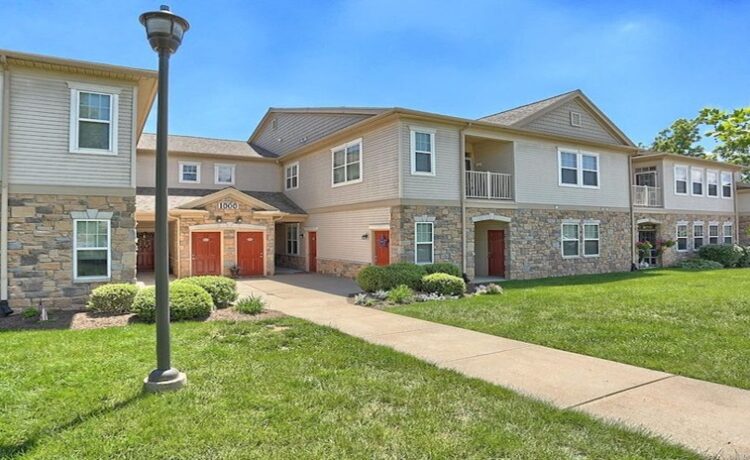Several variables must be taken into consideration when considering whether to rent an apartment or a house. This covers long-term living arrangements, financial limitations, and lifestyle preferences.
In a metropolis offering a wide variety of housing choices. This decision becomes especially clear.
Choosing a residence through Maxwell Realty has an impact on daily living, monetary obligations, and individual comfort. To arrive at an informed choice while renting, it’s critical to comprehend the distinctions.
Understanding the Housing Market in Philadelphia
It offers a wide range of choices, from contemporary high-rise flats in thriving Center City. To quaint row houses in the Manayunk and Fishtown areas. Different benefits are offered by each choice, depending on things like facilities, cost, and location.
Apartment Living
Affordability: Renting an apartment is typically less expensive than renting a house. For those trying to cut costs, a single, couple, or small family may find this to be very helpful.
Amenities: A lot of apartment buildings have features like 24-hour security, gyms, pools, and laundry rooms that are not usually seen in homes.
Maintenance: Renters normally have relatively little maintenance to do. Because repairs and landscaping are usually taken care of by landlords or property management.
Utility Costs: Compared to a larger home, apartments are frequently smaller and have lower heating and cooling expenses.
House Rentals
Room: Compared to apartments, houses usually offer more room, both inside and outside. Thus, making them perfect for households and people who host parties regularly.
Privacy: Generally speaking, a house offers less concern about noisy neighbors and more seclusion than an apartment.
Community: Homes are frequently found in stable, residential communities that foster a sense of belonging.
Features: Certain homes have special features such as garages, private gardens, and storage basements. Go to https://www.phillymag.com/sponsor-content/philly-neighborhood-sights/ for further reading.
Financial Considerations of Homeowners for Renting
Budget Alignment and Monthly Costs
- Apartments: In general, these are thought to be a more affordable choice. Thus, drawing in particular small families, couples, and single professionals.
Reduced Rental Fee: Flats are less expensive to rent per month than houses. Particularly those situated outside of opulent high-rise structures. Based on the size of the apartment and the neighborhood, this difference may be substantial.
Utilities Included: The rent of many units includes utilities. This can help with budgeting and save money in the winter months. That’s by covering things like water, trash, and occasionally even heating.
Less Space, Cheaper Utility Bills: Even if heating, air conditioning, and electricity aren’t covered in the rent. They frequently possess a smaller size, which translates into cheaper utility bills.
- Homes: Those who intend to make a long-term stay or larger families tend to favor house rentals.
Greater Charge: Generally speaking, houses rent for more each month. This is because there is more room, seclusion, and extra features like garages and yards.
Greater Utility Costs: The costs of electricity, water, gas, and repairs are generally greater in homes. Because of the erratic weather in Philadelphia, these expenses are subject to large seasonal variations.
Upkeep & Maintenance: A lot of houses don’t include upkeep in the rental agreement, in contrast to most apartments. The cost of the rental fee each month may increase. That’s if tenants are in charge of doing small repairs, maintaining the grass, and other maintenance duties.
Initial and Recurring Costs
Initial Costs
Security Deposits: Security deposits—learn more are typically needed for both homes and apartments. While home security deposits can be significantly greater. This is often equal to either a 1 or 2-month lease, based on the value of the property and the landlord’s policies.
First Month’s Rental: It’s customary for both houses and apartments to receive the first month’s rent in advance.
Application Charges: These are more typical in apartment buildings. Especially those that are managed. The price of credit and background checks is covered by fees.
Advance Payments: Depending on the property’s upmarket nature or whether they have pets. Tenants renting residences may be required to offer a bigger deposit or make advance payments.
Recurring Costs
Rental Increases: Renters should be prepared for possible yearly spikes in leases because Philadelphia’s rental marketplace may see swings. Market patterns, home improvements, and shifts in the appeal of the neighborhood can all have an impact on these.
Insurance: In principle, both alternatives should have renters’ insurance. While the cost of the policy may be higher for homes because of the increased worth of the real estate and belongings.
Community Fees: Extra HOA charges may be assessed in certain residential communities. Especially those with shared facilities like parks or pool access.
Long-Term Financial Implications
Apartments are advantageous for people who might be required to move periodically for business or personal reasons. Because they give more flexibility and usually have shorter lease agreements. If personal circumstances alter or relocation becomes necessary, this flexibility may prove to be a financial benefit.
Homes offer greater security, which is perfect for families that want to become deeply rooted in the neighborhood. Extended lease durations and the possibility of rent-to-own contracts might provide a means of achieving homeownership. Which ultimately yields financial advantages.







